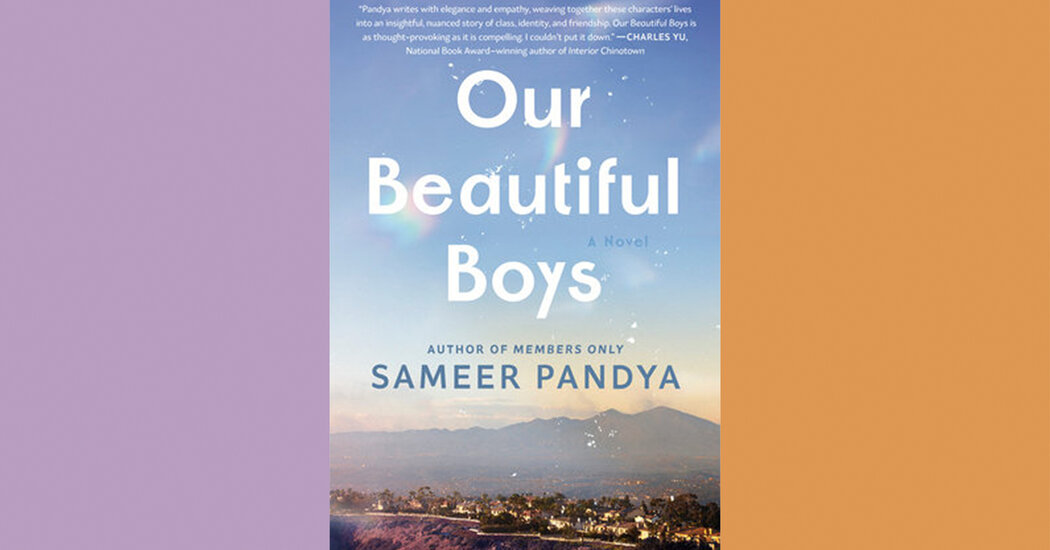OUR BEAUTIFUL BOYS, by Sameer Pandya
From the first page of Sameer Pandya’s timely and timeless new novel, “Our Beautiful Boys,” we’re dropped into a series of contradictions. We’re introduced to a town that’s described as “nothing extraordinary,” but then ushered to a trio of caves cloaked in mystery and lore. We’re told these caves are very old, but then we focus in on contemporary dramas. Thus, the tone is set — here is a novel that carefully plays with assumptions, expectations and subversions.
At the center of the novel is Vikram Shastri, an Indian American 11th grader living in Southern California, who is recruited for his high school’s football team. Vikram’s parents, Gita and Guatam, are none too thrilled — American football is an undeniably violent sport. And as the family’s cherished photo of Vikram’s great-grandfather marching with the Mahatma Gandhi illustrates, violence of any type is not the Shastri way.
But Vikram wants to play. As he pursues the sport, he finds himself thrust into a wildly unexpected alliance with two other boys: Diego Cruz, an 11th grader of Latin American descent who, pressured by his single mother, plays in the hopes that football will land him a full ride to college; and MJ Berringer, the Yale-bound senior quarterback who is actively wrestling with the privilege inherent in being white and wealthy.
As it turns out, all three boys have unpleasant histories with another kid around school: a troubled outcast named Stanley Kincaid. And those unpleasant histories come to the fore one fateful night. Looking to celebrate a football victory, Vikram, Diego and MJ attend a party at an abandoned house in the hills outside their town, and while exploring the aforementioned caves, which are nearby, they have a physical altercation with Stanley. After the fight, they flee the scene, and when Stanley finally emerges sometime later, the boys see that he’s terribly hurt, with wounds that far exceed what the boys say they inflicted. Stanley claims that one of the three boys returned alone and is responsible for the most severe of his injuries, though he’s not sure which one because it was dark and he was intoxicated. And with that, we’re thrust into a series of events that force the characters, their parents and the reader to grapple with the ways the boys’ different backgrounds impact their experience of being accused of wrongdoing.
